22 March, 2002
Climate: Sunny
High 35
Low -3 The Science Behind
Sun Cups Before we proceed with this new topic, recall thermal
conductivity changes from yesterday's journal. Variations in thermal
conductivity depend on changes of snow density, which can be affected
by warmer temperatures and flooding. As far as snow cover on
Jalpertia pond, snow depth and surface textures are two evident
changes. Due to warmer temperatures and gust winds, snow depth
decreases and surface textures present more detail and deviation.
With more than 12 hours of daylight, sun cups (cup-like grooves) will
extend snow surface area especially near dark-colored vegetation --
excellent solar radiant material. Often times, air gaps are found
near vegetation (see Picture #6.) For homework tomorrow, we will
have a quiz on native trees. Study the identification chart (March
19th journal.)
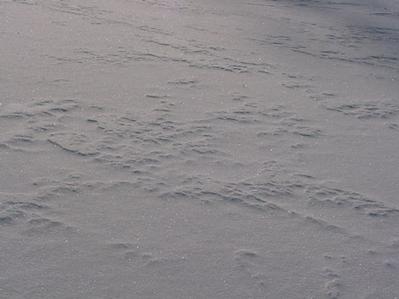
1. Irregular patterns - possibly caused by wind.
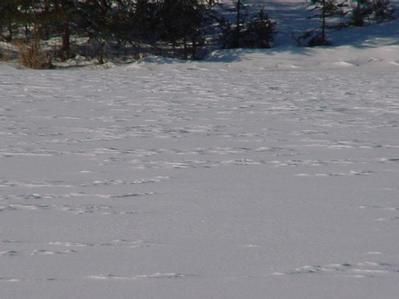
2. 33.5 Mile pond
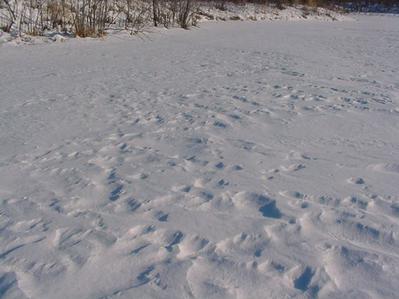
3. Uniform pattern on Jalpertia pond - possibly caused by wind AND sun.
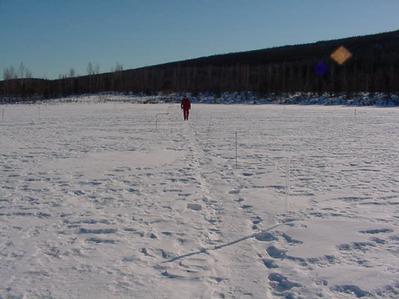
4. MST pond
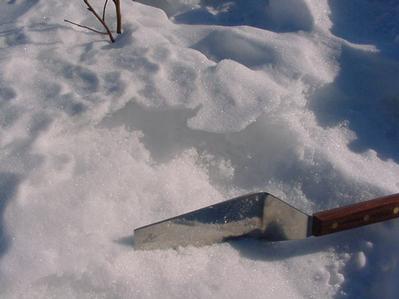
5. Extended sun cup exposing more surface area
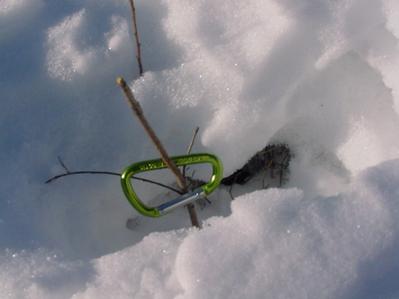
6. Air gap near vegetation from solar radiation.
Contact the TEA in the field at
.
If you cannot connect through your browser, copy the
TEA's e-mail address in the "To:" line of
your favorite e-mail package.
|
